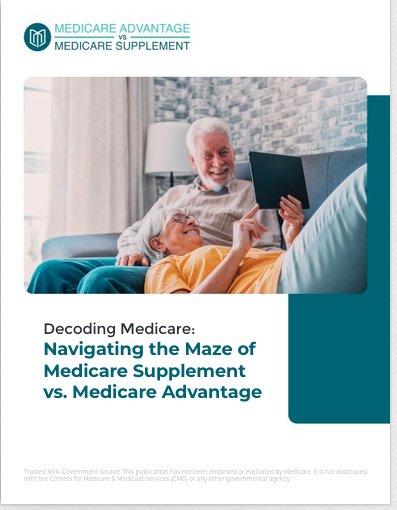Key Takeaways
-
Medicare covers many healthcare expenses, but gaps in coverage can lead to unexpected out-of-pocket costs. Understanding these gaps helps you plan ahead.
-
Reviewing your Medicare plan annually ensures you have the right coverage for your needs, especially as costs, services, and eligibility rules change over time.
Are You Covered? Understanding the Gaps in Your Medicare Plan
Medicare offers valuable healthcare coverage, but it doesn’t cover everything. If you’re not careful, unexpected gaps in coverage could leave you with significant out-of-pocket costs. The last thing you want is to be caught off guard when you need care the most. That’s why it’s important to identify potential coverage gaps before they impact your budget.
The Basics: What Medicare Covers and What It Doesn’t
Medicare is divided into different parts, each covering specific healthcare services:
-
Medicare Part A (Hospital Insurance): Covers inpatient hospital stays, skilled nursing facility care, hospice, and some home healthcare.
-
Medicare Part B (Medical Insurance): Covers outpatient care, doctor visits, preventive services, and medical supplies.
-
Medicare Part D (Prescription Drug Coverage): Helps cover the cost of prescription medications.
-
Medicare Advantage (Part C): An alternative to Original Medicare that bundles Parts A, B, and sometimes D, often with additional benefits.
Even with these options, there are still services that Medicare doesn’t fully cover or excludes entirely. Let’s break down the most common gaps so you can be better prepared.
Prescription Drug Costs: Don’t Let the Out-of-Pocket Cap Surprise You
If you have a Medicare Part D plan, you may be aware that prescription drug costs can vary widely. As of 2025, Medicare has introduced a $2,000 annual out-of-pocket cap for prescription drugs. While this provides relief, it doesn’t mean medications are free—cost-sharing, deductibles, and formularies still play a role.
What you should do:
-
Check your plan’s drug formulary to ensure your medications are covered.
-
Look for restrictions like prior authorization or quantity limits that may affect access.
-
Review your total out-of-pocket costs, including premiums, deductibles, and co-pays, to avoid unexpected expenses.
Dental, Vision, and Hearing: Essential but Not Fully Covered
Original Medicare does not cover routine dental, vision, or hearing services. This means expenses for dentures, eyeglasses, hearing aids, and routine checkups typically come out of your pocket unless you have additional coverage.
What you should do:
-
Consider a separate dental, vision, or hearing plan to cover these services.
-
Look for state or community programs that offer assistance for these types of care.
-
If you have Medicare Advantage, check if your plan includes these benefits.
Long-Term Care: A Costly Gap in Coverage
Many people assume Medicare covers long-term care, but it does not pay for custodial care in nursing homes or assisted living facilities. Medicare only covers short-term skilled nursing care under specific conditions, such as following a hospital stay.
What you should do:
-
Research long-term care options and understand Medicaid eligibility if needed.
-
Consider long-term care insurance or alternative savings strategies.
-
Discuss care planning with family members to explore all financial and care options.
Out-of-Pocket Costs: Deductibles, Co-Pays, and Coinsurance
Even if Medicare covers a service, you’re still responsible for a portion of the costs.
-
Medicare Part A deductible (2025): $1,676 per benefit period.
-
Medicare Part B deductible (2025): $257 annually.
-
Medicare Part B coinsurance: 20% of the cost for covered services.
These costs add up quickly, especially if you require frequent medical care.
What you should do:
-
Plan for potential expenses by setting aside funds for healthcare costs.
-
Consider supplemental coverage that helps with deductibles and co-pays.
-
Compare Medicare Advantage plans if they offer cost-sharing benefits that suit your needs.
Foreign Travel: Limited Coverage Outside the U.S.
If you travel outside the U.S., Medicare generally does not cover healthcare costs, except in very limited circumstances. This can be a major financial risk if you need emergency medical care while abroad.
What you should do:
-
Look into travel insurance that includes medical coverage.
-
Consider a supplemental policy that offers international coverage.
-
Plan ahead for potential medical needs while traveling.
Medical Equipment and Supplies: What Medicare Pays For
Medicare covers durable medical equipment (DME) like wheelchairs, oxygen tanks, and hospital beds, but only under strict guidelines. Some supplies may require prior approval or may not be covered at all.
What you should do:
-
Confirm that your equipment supplier is Medicare-approved.
-
Check if your plan requires prior authorization for certain equipment.
-
Understand rental versus purchase costs for durable medical equipment.
Preventive Services: Take Advantage of Free Screenings
Medicare covers a variety of preventive services, including screenings for cancer, diabetes, and heart disease. However, additional follow-up tests or treatments may involve out-of-pocket costs.
What you should do:
-
Take advantage of covered screenings and annual wellness visits.
-
Ask your doctor about potential costs for follow-up tests or treatments.
-
Stay proactive with your health to prevent costly medical conditions.
Emergency and Ambulance Services: When Costs Can Be Unexpected
Medicare covers emergency services, but ambulance transportation is only covered if it’s deemed medically necessary. Non-emergency ambulance trips may not be covered, leaving you responsible for the full cost.
What you should do:
-
Know when ambulance services are covered and when they aren’t.
-
Consider alternative transportation options for non-emergency situations.
-
Check if supplemental coverage can help with ambulance costs.
Reviewing Your Coverage: A Yearly Necessity
Your healthcare needs change over time, and Medicare plans adjust annually. Reviewing your plan each year ensures you’re not left with unexpected costs or missing out on new benefits.
What you should do:
-
Review your plan during Medicare Open Enrollment (October 15 – December 7).
-
Compare plans to see if a better option is available.
-
Contact Medicare or a trusted resource for guidance if you have questions.
Stay Informed and Avoid Costly Surprises
Identifying coverage gaps now can save you from unexpected medical bills later. By reviewing your plan regularly, knowing what Medicare covers, and considering additional coverage where needed, you can protect your health and your finances. A little planning goes a long way when it comes to Medicare.










